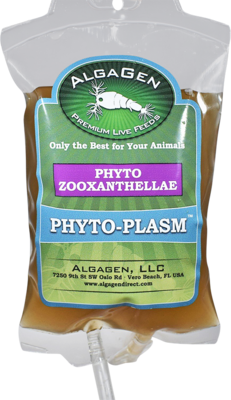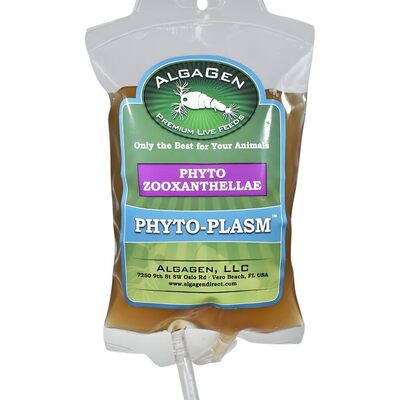Introduction to Zooxanthellae
Zooxanthellae are microscopic algae that play a crucial role in coral reef ecosystems. These tiny organisms form a symbiotic relationship with corals, providing them with essential nutrients and energy. Understanding zooxanthellae is key to grasping the delicate balance of marine life and the importance of coral conservation.
The Biology of Zooxanthellae
Zooxanthellae belong to the genus Symbiodinium and are classified as dinoflagellates. These single-celled algae possess unique photosynthetic properties that allow them to convert sunlight into energy, which they share with their coral hosts. There are several different clades (genetic varieties) of zooxanthellae, each with its own characteristics and adaptations.
For reef enthusiasts looking to support coral health, PhycoPure™ products offer a range of zooxanthellae supplements designed to boost coral vitality.
Symbiotic Relationship with Corals
The relationship between zooxanthellae and corals is mutually beneficial. Zooxanthellae provide corals with up to 90% of their energy requirements through photosynthesis. In return, corals offer a protected environment and supply the algae with essential nutrients. This symbiosis is responsible for the vibrant colors we associate with healthy coral reefs.
To maintain this delicate balance in home aquariums, many reef keepers turn to specialized products like those found in the Coral Tank collection.
Energy Transfer
90% of coral energy from zooxanthellae
Nutrient Exchange
Corals provide N, P, and micronutrients
Color Enhancement
Vibrant colors from algal pigments
Growth Support
Enhances coral calcification rates
Importance in Reef Ecosystems
Zooxanthellae are fundamental to the productivity and biodiversity of coral reef ecosystems. They contribute significantly to reef formation by enhancing coral calcification rates. Their presence supports a wide variety of marine life, from tiny invertebrates to large predatory fish.
Different coral types, such as those in the SPS Coral category, have varying relationships with zooxanthellae, affecting their growth patterns and environmental requirements.
Threats and Coral Bleaching
Climate change, ocean acidification, and pollution pose serious threats to zooxanthellae and their coral hosts. When corals experience stress, they may expel their zooxanthellae, leading to coral bleaching. This process leaves corals vulnerable and can result in widespread reef death if conditions don't improve quickly.
Reef tank enthusiasts can learn more about maintaining optimal conditions for zooxanthellae and corals through resources in the Reef Tank collection.
Factors Contributing to Coral Bleaching
Conservation and Management
Efforts to protect zooxanthellae and coral reefs include research into more resilient algae strains and coral restoration projects. In the aquarium trade, cultured zooxanthellae are used to support coral health and growth.
Products like AlgaGen's PhycoPure™ Zooxanthellae offer a way for hobbyists to supplement their corals with beneficial algae:
These concentrated sources of zooxanthellae can help maintain coral health and promote growth in captive environments.
Zooxanthellae in Aquaculture
The use of zooxanthellae in aquaculture has become increasingly important for coral propagation and reef restoration efforts. Aquarists and researchers use products like Phyto-Plasm™ Phyto Zooxanthellae to provide easy-to-feed liquid supplements for corals:
These supplements can be particularly beneficial for maintaining the health of various coral types, including those found in the Saltwater Feeds collection.
Conclusion
Zooxanthellae are remarkable organisms that form the foundation of coral reef ecosystems. Their symbiotic relationship with corals is essential for the health and survival of these diverse marine habitats. As we face increasing environmental challenges, understanding and protecting zooxanthellae becomes crucial for coral conservation efforts.
Whether you're a marine biologist, an aquarium enthusiast, or simply someone who cares about ocean health, recognizing the importance of zooxanthellae is key to appreciating the complexity and beauty of coral reefs. By supporting research, practicing responsible reef-keeping, and raising awareness, we can all play a part in preserving these vital ecosystems for future generations.








Recent post